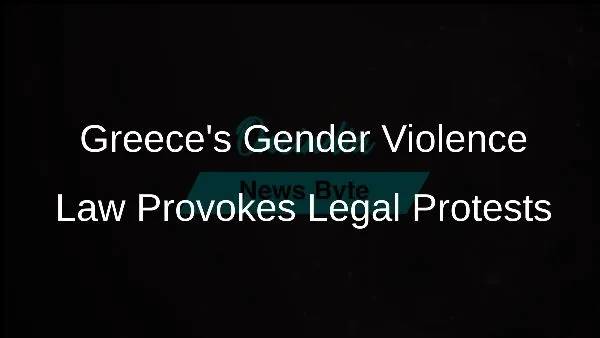Updated: Saturday, January 18, 2025, 1:00 [IST]
Greek lawyers have announced a nationwide strike for January 23-24 to oppose a new bill addressing gender-based violence.
They argue that the proposed legislation breaches constitutional principles, particularly the presumption of innocence. The bar associations' coordinating committee has expressed concerns about the bill's legal implications and their exclusion from the drafting process.
The Proposed Legislation
The draft law, introduced to parliament this week, aims to tackle forms of abuse not covered by current laws. It addresses issues like revenge porn, cyberstalking, and workplace sexual harassment. The bill proposes harsher penalties, including imprisonment without suspension for repeat offenders, and strengthens victim protections.
Legal Concerns and Constitutional Issues
Lawyers argue that the core provisions of the draft law violate the presumption of innocence, the separation of powers, and the principle of proportionality. They have also criticized the government's exclusion of legal experts from the drafting process.
The bill aligns with a 2024 European Union directive aimed at preventing violence against women and domestic violence. This directive mandates member states to criminalize acts like forced marriages and cyberstalking, and requires robust protection and support services for victims, with national legislation to be updated by mid-2027.
Increased Awareness and Support Services
Growing awareness of domestic violence in Greece has led to an increase in reported cases since 2020, partly due to better public knowledge of available support services. Police and volunteer organizations have noted this trend, which coincides with a government initiative to establish a national shelter network last year.
Enhanced Protections for Victims
The new bill includes measures to protect minors from online harassment and provisions for electronic monitoring of perpetrators. These reforms aim to enhance safety for victims while imposing stricter consequences on offenders. The government's efforts to address domestic violence have received support, despite criticisms of the draft legislation's construction.
Conclusion
The Greek legal associations acknowledge the government's intention to combat domestic violence but criticize the bill's structure, arguing that it fails to uphold essential legal principles. This legislative effort reflects broader European initiatives to strengthen protections against gender-based violence, and by aligning with EU directives, Greece aims to ensure comprehensive measures are in place to safeguard victims and hold perpetrators accountable across member states.

